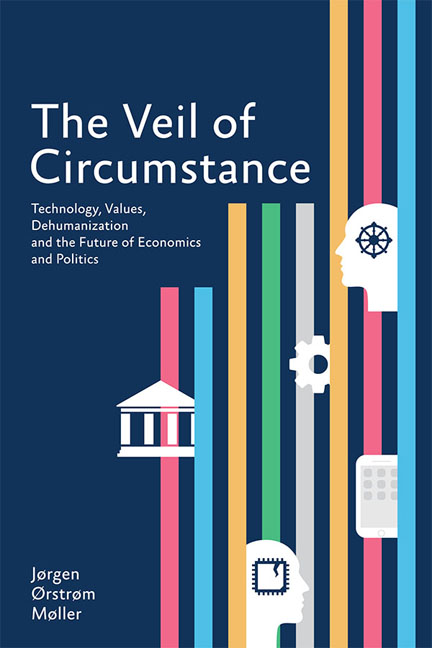 The Veil of Circumstance
The Veil of Circumstance from II - POLITICS
Published online by Cambridge University Press: 19 May 2017
Broadly speaking, the economic theory of the firm says that it is more profitable to conduct all activities under one roof in order to achieve increasing economies of scale and to minimize transaction costs such as transport and logistics. This assumption is being contradicted today by new technology. At the same time, firm ownership is undergoing fundamental changes, which call into question the firm's role in society.
Ownership
Industrialization created enterprises which operated locally, and constituted a bond between owners, citizens and the local community. This belongs to the past. Very few major enterprises operate in a local environment. Blurred ownership means that owners take no interest in local communities. In many cases, those owners are financial or investment funds, looking for a surge in the stock price so they can get out with a quick profit, with no interest in the long-term future of the company they own.
The world is moving into a new kind of corporate capitalism — combining a concentration of financial power with comparatively few corporations controlling communication, increasing anonymous ownership, a business sector decoupling from the public sector and the population, the breakup of big corporations, and the movement of employment out from large corporations. The expansion of ICTs and globalization have also contributed.
This is a model the world has not seen before and does not fully understand. Yet it entails massive social and economic upheavals.
The business sector no longer sees much reason for working inside a social contract with the government and the population. On the contrary, it looks upon the government as a cash cow to take over burdens it is unwilling to shoulder itself, and the population as a mass of consumers to be squeezed.
One of the principal causes of the global economic crisis was the financial sector's success in convincing the government and the population that deregulation would stimulate economic activity and bring benefits to all. What happened was something very different. The financial sector used deregulation to undertake high-risk, high-return operations, and reaped the profit without preparing for rainy days. The crisis was largely a result of reckless lending.
To save this book to your Kindle, first ensure no-reply@cambridge.org is added to your Approved Personal Document E-mail List under your Personal Document Settings on the Manage Your Content and Devices page of your Amazon account. Then enter the ‘name’ part of your Kindle email address below. Find out more about saving to your Kindle.
Note you can select to save to either the @free.kindle.com or @kindle.com variations. ‘@free.kindle.com’ emails are free but can only be saved to your device when it is connected to wi-fi. ‘@kindle.com’ emails can be delivered even when you are not connected to wi-fi, but note that service fees apply.
Find out more about the Kindle Personal Document Service.
To save content items to your account, please confirm that you agree to abide by our usage policies. If this is the first time you use this feature, you will be asked to authorise Cambridge Core to connect with your account. Find out more about saving content to Dropbox.
To save content items to your account, please confirm that you agree to abide by our usage policies. If this is the first time you use this feature, you will be asked to authorise Cambridge Core to connect with your account. Find out more about saving content to Google Drive.